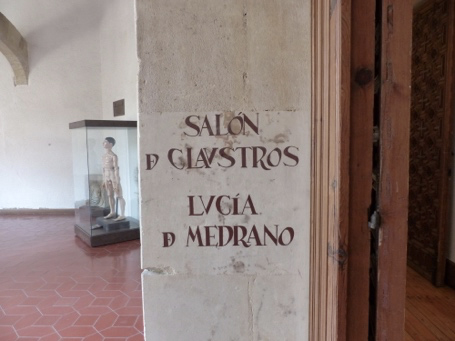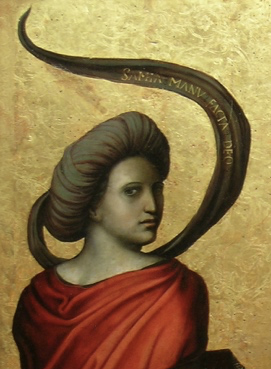Lucía de Medrano was a Spanish intellectual of the Renaissance, notable for being one of the first women in Europe to teach at a university. She was born in Salamanca, Spain, in the year 1465. Medrano stood out at a time when access to education and academic roles was almost exclusively reserved for men.
Lucía de Medrano taught at the University of Salamanca, one of the oldest universities in Europe. According to some records, she held a Latin chair in 1508, during the absence of Antonio Nebrija. This was a notable achievement, given that women’s participation in university teaching at the time was extremely rare. Although there is little detailed information about her life and work, her contribution to education and her role as a pioneer in academia are recognized.

How was it possible that a woman could teach at the University of Salamanca? We move to this time. It was the new and enriched bourgeoisie that saw in the universities a wonderful springboard towards the Court, which in short caused a certain ‘university boom’ to be experienced throughout the 16th century. Isabella the Catholic, who had suffered from her lack of eduction – much less than that of her husband Ferdinand, who had been taught by his father John II and spoke Latin – as she was deprived of the pleasure of reading, of conversing at embassies. or exchanging letters with the Pope, she wanted the centers of Renaissance knowledge to be open in Spain to both men and women, although the general opinion was that the honest woman looked more beautiful the more uneducated and, if possible, without leaving the threshold. of your home.
In any case, the Catholic queen was eloquent in her desires and was able to build around her figure a current of love for knowledge that ended up permeating all the women of the Court.
Lucia de Medrano’s case is an early example of women’s struggles and achievements in the field of higher education, and her story has become a symbol of female ability and perseverance in adverse contexts. Lucía de Medrano continues to be an inspiring figure, especially at the University of Salamanca, where her legacy is remembered and honored.

